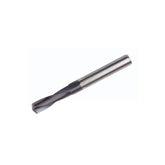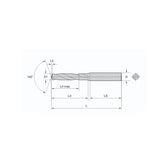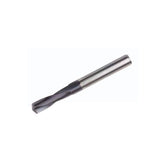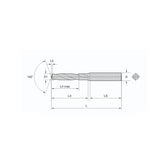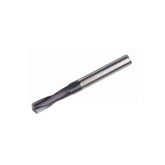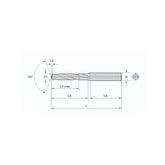Is Your Carbide Drill Bit Easy to Break?
Carbide Drill Breakage Analysis
Understanding the causes of carbide drill failure and how to prevent it
Why Carbide Drills Break Easily
Five Primary Causes of Failure
-
Material Properties
Carbide's primary component is tungsten, which has high hardness but significant brittleness, making it prone to fracture.
-
Runout Issues
After clamping the carbide drill, runout at the drill tip must be controlled within 0.02 mm. For specifications below 2.0 mm, runout should be kept within 0.01 mm.
-
Drill Misalignment
As a self-rotating tool, longer overhangs increase runout during rotation, compromising centering accuracy. This causes initial drilling to deviate from perpendicular. For deep hole machining, always start with a short drill to create a pilot hole before switching to a long drill.
-
Chip Control Problems
Many operators incorrectly use high-speed steel cutting parameters (speed and feed) with carbide drills. This accelerates wear and causes chip entanglement leading to breakage.
-
Drill Quality Instability
Failure to determine when to replace the drill results in delayed removal and subsequent breakage.
Once these issues are addressed, carbide drills deliver exceptional performance with several times the lifespan and efficiency of high-speed steel drills.
When to Replace Carbide Drills
Three Key Indicators for Drill Replacement
-
Chip Inspection
When chip breaking effectiveness decreases - chips become longer with burrs or torn edges - indicating tool edge wear.
-
Auditory Monitoring
Abnormal machining sounds with significant volume changes, or noises suggesting excessive friction or squeezing.
-
Load Observation
Increased machine load indicates growing cutting resistance due to tool edge wear.
Important: When any of these three signs appear, replace the drill immediately.
Note: The term "丝" refers to 0.01 mm. Carbide is primarily tungsten-based with cobalt binder. Proper coolant application is critical for carbide tool life.
